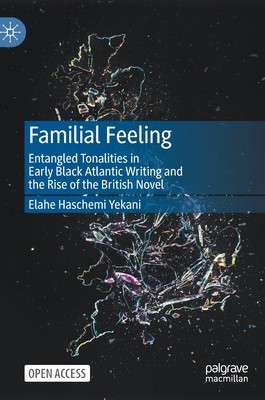
- We will send in 10–14 business days.
- Author: Elahe Haschemi Yekani
- Publisher: Palgrave Macmillan
- ISBN-10: 3030586405
- ISBN-13: 9783030586409
- Format: 14.8 x 21 x 1.9 cm, kieti viršeliai
- Language: English
- SAVE -10% with code: EXTRA
Reviews
Description
This open access book discusses British literature as part of a network of global entangled modernities and shared aesthetic concerns, departing from the retrospective model of a postcolonial "writing back" to the centre. Accordingly, the narrative strategies in the texts of early Black Atlantic authors, like Equiano, Sancho, Wedderburn, and Seacole, and British canonical novelists, such as Defoe, Sterne, Austen, and Dickens, are framed as entangled tonalities. Via their engagement with discourses on slavery, abolition, and imperialism, these texts shaped an understanding of national belonging as a form of familial feeling. This study thus complicates the "rise of the novel" framework and British middle-class identity formation from a transnational perspective combining approaches in narrative studies with postcolonial and queer theory.
EXTRA 10 % discount with code: EXTRA
The promotion ends in 22d.09:31:45
The discount code is valid when purchasing from 10 €. Discounts do not stack.
- Author: Elahe Haschemi Yekani
- Publisher: Palgrave Macmillan
- ISBN-10: 3030586405
- ISBN-13: 9783030586409
- Format: 14.8 x 21 x 1.9 cm, kieti viršeliai
- Language: English English
This open access book discusses British literature as part of a network of global entangled modernities and shared aesthetic concerns, departing from the retrospective model of a postcolonial "writing back" to the centre. Accordingly, the narrative strategies in the texts of early Black Atlantic authors, like Equiano, Sancho, Wedderburn, and Seacole, and British canonical novelists, such as Defoe, Sterne, Austen, and Dickens, are framed as entangled tonalities. Via their engagement with discourses on slavery, abolition, and imperialism, these texts shaped an understanding of national belonging as a form of familial feeling. This study thus complicates the "rise of the novel" framework and British middle-class identity formation from a transnational perspective combining approaches in narrative studies with postcolonial and queer theory.


Reviews